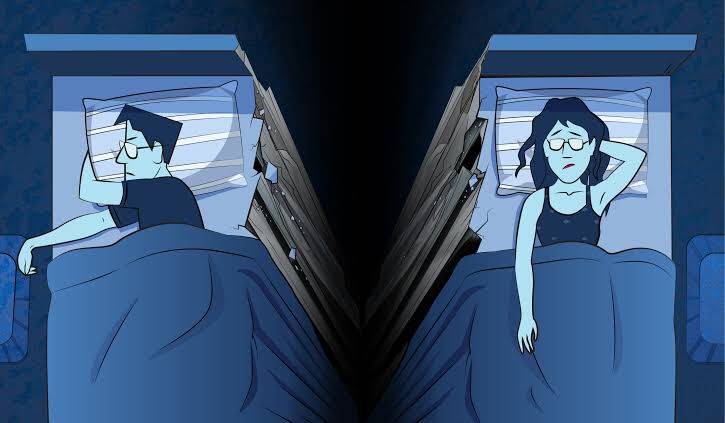Sleep Divorce: The Surprisingly Simple Fix for Restless Nights and Happier Relationships

For generations, sharing a bed with your partner has been seen as the ultimate symbol of love and commitment. But let’s be honest—what’s romantic about losing sleep to relentless snoring, tug-of-war blankets, or an elbow to the ribs at 3 a.m.? Enter “sleep divorce,” a refreshingly practical trend where couples sleep separately to reclaim their rest and, paradoxically, improve their relationships.
What Exactly Is Sleep Divorce?
Don’t let the name fool you—sleep divorce isn’t… well, a divorce. It’s just a strategy for better rest, free of midnight interruptions and mismatched sleeping habits. Whether it’s snoring that could rival a chainsaw massacre or one partner’s preference for Netflix marathons in bed, sharing a sleep space isn’t always the dream we’ve been sold.
By sleeping apart, couples prioritize their health and well-being, acknowledging that being well-rested makes them happier and less irritable. And let’s face it—when you’re not running on fumes, it’s easier to laugh about the little things rather than snap about them.

Why It Works: The Science Behind Sleeping Apart
Science has your back on this one. Chronic sleep deprivation can wreak havoc on your mood, productivity, and even your relationship. According to the American Academy of Sleep Medicine, one in three adults isn’t getting enough sleep—and a partner’s noisy or restless habits can be a major culprit.
Snoring alone affects more than half of men and nearly 40% of women. Add to that differing preferences for room temperature, mattress firmness, or bedtime rituals, and it’s no surprise many couples are struggling to snooze in harmony. Sleep divorce lets each person create their ideal sleep setup, turning bedtime into bliss instead of a battlefield.
Does It Spell the End of Intimacy?
Here’s the thing: sleep divorce doesn’t mean the end of romance. In fact, many couples report feeling closer because they’re well-rested and more patient with each other. Being affectionate and intentional about connection before heading to separate sleep spaces can make those moments even more meaningful.
Think of it this way—sleeping apart doesn’t mean you love each other any less. It just means you love sleep and your partner enough to make a change that benefits both.
Who’s Saying Yes to Sleep Divorce?
From power couples juggling busy careers to older partners dealing with health issues, people everywhere are embracing sleep divorce. Even celebrities like Gwyneth Paltrow and Chris Martin have openly endorsed the idea, helping to erase the stigma.
This isn’t just a Western trend. In Japan, separate sleeping arrangements—known as “kawa no ji”—have been common for ages, emphasizing the importance of undisturbed rest. As awareness of sleep hygiene grows globally, more couples are rethinking the traditional “one bed for two” setup.
Is It for You? How to Make Sleep Divorce Work
If the idea of sleep divorce sparks interest, start by having an open conversation with your partner. The goal isn’t to create distance; it’s to ensure both of you are healthier and happier.
Here’s how to ease into it:
• Test the Waters: Start with separate beds in the same room before moving to different rooms if needed.
• Tailor Your Space: Make your sleeping environment as cozy and customized as possible.
• Stay Connected: Prioritize cuddles, conversations, or shared moments before bedtime.
• Keep Talking: Periodically check in with your partner to ensure the arrangement works for both.
The Future of Sleep Divorce
As sleep divorce gains traction, it’s challenging old-school ideas about relationships. Who says love means sharing a bed when that bed leaves you grumpy and unrested? Instead, couples are rewriting the rulebook, choosing health, harmony, and a good night’s sleep over outdated norms.
So, if you’re tired of being tired, it might be time to give sleep divorce a try. It’s not a sign of failure—it’s a modern love language that says, “I care enough about us to make sure we both wake up on the right side of the bed.” Or beds, in this case.
